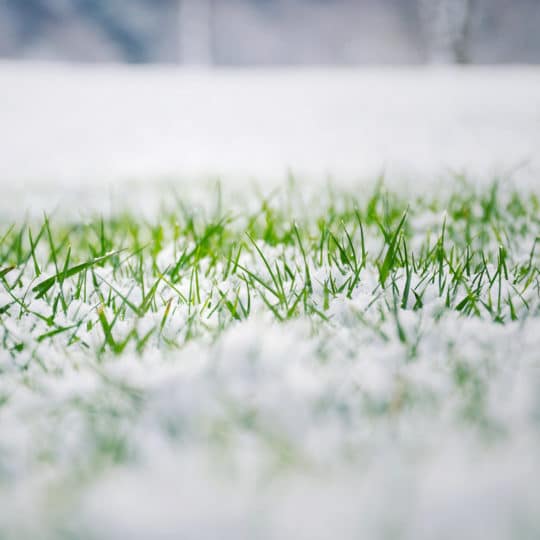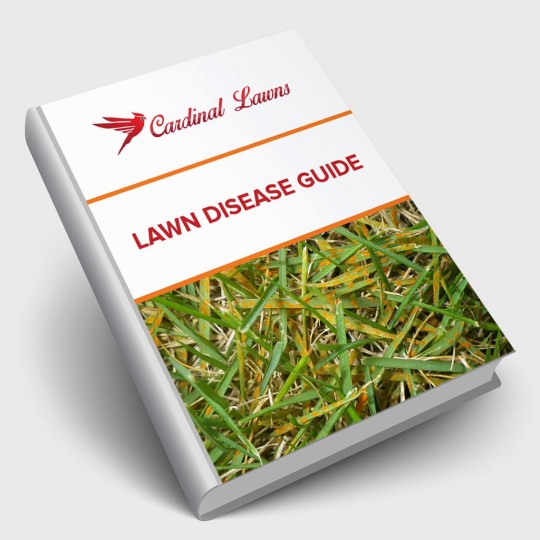Signs of Snow Mold
Learn How to Protect and Treat Your Lawn
Posted
December 27, 2018

Freshly fallen snow may make the ground look pretty for a little while, but it can also lead to a cold-weather fungus on some types of grasses. Learn more about snow mold and how you can treat it to protect your grass this season.
What is Snow Mold
Grey or pink-colored circles across your lawn is one of the signs of snow mold, a fungus that primarily affects cool-season grasses. When you get a heavy snowfall before the ground has completely frozen, that weighs down grass and traps in moisture from leaves and other lawn debris.
The signs of a problem are more noticeable in the spring when all the snow melts. You’ll see matted-down, crusty, circular patches ranging from a few inches to several feet across the lawn.
There are two types of snow mold: grey and pink. Grey snow mold patches are greyish-white, and pink mold has a whitish-pink appearance. Pink can be more severe than grey, as it can kill the crown and roots of grass plants; grey mold usually only affects the grass blades.
Even though the signs of mold won’t appear till spring, there are ways to help the grass before it’s too late.
How to Treat Snow Mold
Prevention is key. If you’ve noticed snow mold in your yard before, be sure to treat it with a preventative fungicide in the fall before the first heavy snow. Properly mow your lawn, since long grass is a breeding ground for mold. Also, don’t let leaves pile up on the grass. Rake them or mulch them with the mower. You can also help the melting process along by not adding deep snow piles on your lawn while clearing snow from sidewalks and driveways.
If you still see signs of mold in early spring, first gently rake the affected areas to loosen any matted grass. This should help the lawn dry and give unaffected grass room to grow. Any damaged areas can be repaired using a patching product as soon as the weather permits.
For any other questions about protecting your lawn from snow mold, contact Cardinal Lawns.

Download Your FREE Lawn Disease Guide
Even the most manicured landscapes are susceptible to lawn disease. Take some time to learn about identification and removal before one takes over your lawn. This handy guide teaches you how to spot common lawn diseases as well as how to properly treat them.